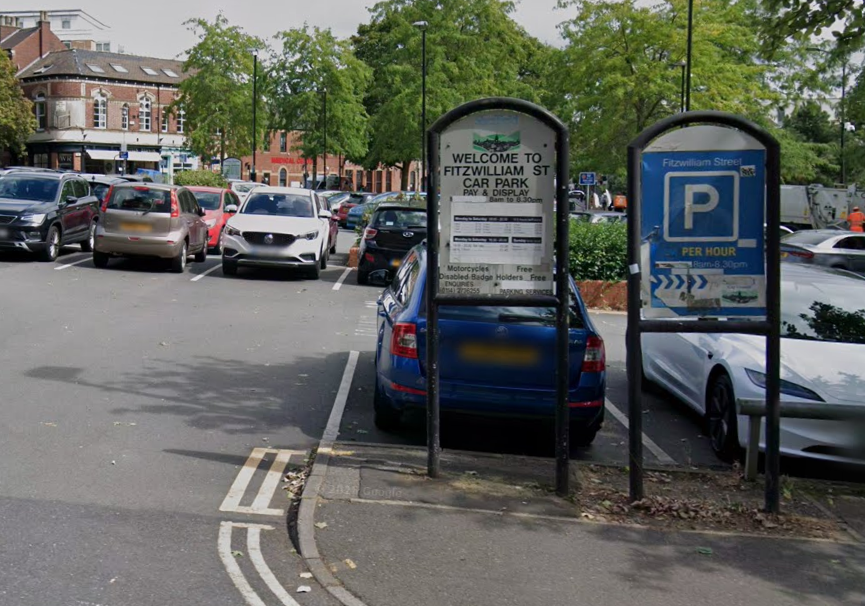Sheffield City Council’s leading car parks have collectively generated over £1 million in revenue annually, according to newly released figures. This substantial income underscores the vital role these facilities play in the city’s infrastructure and economic landscape.
The data reveals that the top seven car parks, strategically located across Sheffield, are pivotal in accommodating the city’s bustling activity. These car parks include Moorfoot, Charles Street, Rockingham Street, Wellington Street, Carver Street, Sheffield Hallam University, and City Hall. Each contributes significantly to the council’s finances, supporting municipal services and development projects.
Understanding the Numbers
The financial success of these car parks can be attributed to their prime locations and the high demand for parking in Sheffield’s city center. The facilities serve not only local residents but also visitors and commuters, highlighting their importance in the city’s daily operations.
According to the figures, the combined revenue from these car parks exceeds £1 million annually, reflecting a consistent demand for parking in Sheffield.
This revenue stream is crucial for Sheffield City Council, enabling it to fund various public services and infrastructure improvements. The funds are often reinvested into maintaining and upgrading the city’s transport facilities, ensuring they meet the needs of a growing urban population.
The Role of Parking in Urban Planning
The prominence of these car parks in Sheffield’s urban planning cannot be overstated. As cities expand and evolve, the demand for accessible and convenient parking solutions becomes more pronounced. Sheffield’s approach to managing its parking facilities is a testament to its commitment to supporting both economic growth and environmental sustainability.
Urban planning experts emphasize the importance of integrating parking solutions with public transport systems to reduce congestion and promote eco-friendly travel options. In Sheffield, efforts are being made to balance the need for parking with initiatives to enhance public transportation and reduce carbon emissions.
“Effective parking management is a cornerstone of successful urban planning,” said Dr. Emily Carter, an urban development specialist. “Cities like Sheffield are setting an example by leveraging parking revenue to fund sustainable transport initiatives.”
Historical Context and Future Implications
Historically, parking has been a contentious issue in many urban areas, with debates over pricing, availability, and environmental impact. Sheffield’s strategy of optimizing its parking facilities while investing in public transport reflects a broader trend towards sustainable urban development.
Looking ahead, Sheffield City Council plans to continue refining its parking strategy, potentially exploring smart parking technologies to enhance user experience and efficiency. These advancements could include real-time availability updates and mobile payment options, aligning with the city’s digital transformation goals.
Meanwhile, the council’s ongoing commitment to reinvesting parking revenue into community projects and infrastructure improvements remains a priority. This approach not only supports the city’s economic vitality but also enhances the quality of life for its residents.
As Sheffield continues to grow and attract more visitors and businesses, the role of its car parks will undoubtedly remain a key component of its urban infrastructure. The city’s ability to adapt and innovate in this area will be crucial in meeting future challenges and opportunities.
 Labour’s LGBT “Reset” Leaves Many Feeling Betrayed
Labour’s LGBT “Reset” Leaves Many Feeling Betrayed Reform UK Surges in Polls as Starmer’s Approval Hits Record Low
Reform UK Surges in Polls as Starmer’s Approval Hits Record Low Portsmouth Eyes Transfer as Brescia Faces Bankruptcy Crisis
Portsmouth Eyes Transfer as Brescia Faces Bankruptcy Crisis Southsea Venue Vandalized: Police Seek Suspect in Window-Smashing Incident
Southsea Venue Vandalized: Police Seek Suspect in Window-Smashing Incident South-East Leaders’ Loyalty to Tinubu Transcends Party Lines, Says Minister Umahi
South-East Leaders’ Loyalty to Tinubu Transcends Party Lines, Says Minister Umahi